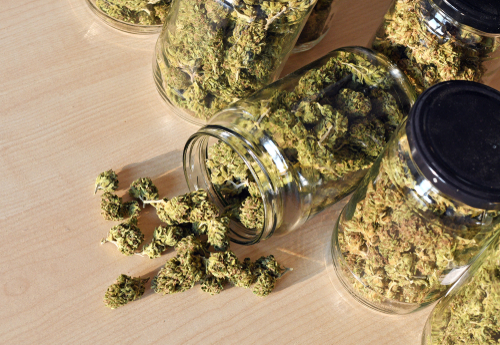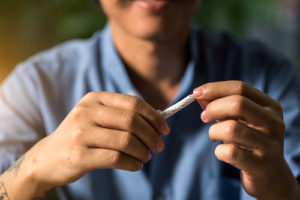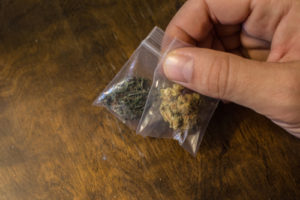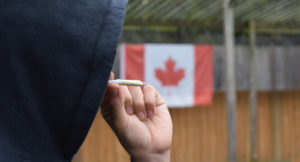
“Self-medication” with marijuana has been an ongoing issue for decades. With the recent legalization of controlled cannabis sales in Canada, however, there may be some confusion amongst youth as to the safety and advisability of marijuana use. Many people – youth included – are under the misunderstanding that cannabis is a blanket “cure” or “remedy” for mental health issues such as anxiety or depression. While some people may experience temporary relief from a variety of disorders, others see their issues compounded. Youth in particular should not be making decisions about self-medication, as (1) marijuana use remains illegal for those under 18; and (2) childhood and adolescence presents enough challenges and difficulty as is. Let’s dive into some of the complexities of marijuana use among youth, particularly as it relates to mental health.
Legalization of Marijuana in Canada
In October 2018, Canada became the second country in the world to legalize marijuana. Canadians are also among the top four nations with the highest marijuana usage among adults. Despite the legalization, there’s still considerable debate over this subject and the answers aren’t clear. The legality of using marijuana has been a hot topic in many countries, and one bone of contention is its relationship to anxiety as well as mental health and development.
We know that cannabis is controlled and not legal for those less than 18 years-old nationwide, with some provinces making the legal minimum age at 19 or higher. Possession of marijuana is only limited to a max of 30 grams per person and legally can only be bought from a licensed retailer. But are these restrictions enough to prevent the potential risks & dangers involved, particularly for the youth (teens)?

Getting High with Marijuana
Prior to the legalization last year, only the medical use of Marijuana was allowed in the country when Health Canada started the Medical Cannabis Program. Other than that, Cannabis has been banned since 1923 under the Narcotics Drug Act Amendment Bill. But this did not stop people from using marijuana for recreational purposes.
Just like any psychoactive substance, marijuana will give a feeling of getting high after smoking or ingesting. This is due to the chemical compound called tetrahydrocannabinol (THC). When you smoke marijuana, THC will travel from your lungs to your bloodstream before it reaches your brain. It stimulates the brain’s production of Dopamine, a neurotransmitter that’s responsible for triggering pleasure. Most people use this effect of marijuana as a coping mechanism for anxiety or generalized anxiety disorder (GAD) through self-medication. It can provide relief to some, which encourages individuals to use marijuana every time anxiety symptoms manifest.
This short-term benefit of marijuana is supported by some studies, particularly by a study in the Journal of Affective Disorders by the Washington State University scientists. The study found that smoking or ingesting marijuana could significantly help in reducing self-reported levels of anxiety, depression, and stress. However, despite appearing to be an “instant solution,” self-medication of marijuana has a negative long-term effect on mental health.

Marijuana and Mental Health
According to Canadian Health, the use of marijuana increases the risk of developing different mental illnesses in some people. These include schizophrenia and psychosis, two chronic mental disorders. These illnesses will manifest strongly with individuals who started using marijuana early, those who use it almost on a daily basis, and those with a family history of schizophrenia or psychosis.
People who use marijuana frequently also have a higher risk of getting anxiety disorders, depression, and suicidal tendencies. They can also develop a dependence on this psychoactive substance. The dependence can make behavior-based coping strategies ineffective, so the individuals will just rely on more marijuana to fight anxiety and depression. This could lead to Cannabis Use Disorder and other mental health issues.
Youth can also suffer greatly the effects of marijuana. According to research, the brain is not fully developed until an age of around 25 years old. The use of marijuana before this time can potentially hinder proper development and functioning of the brain. One of the risks of cannabis involved in brain function is long-term memory loss. Several studies have found that THC affects the part of the brain in charge of memory formation, the hippocampus. The long-term use of marijuana can, therefore, lead to memory impairment.

Effect of Cannabis Legalization
Despite the possible effect of marijuana, a poll in October 2016 showed that about five million adults in Canada use this psychoactive drug at least once a month. That figure was expected to rise by 19 percent once the legalization takes effect, and so it did. After Prime Minister Trudeau declared legal the use of marijuana on 17 October 2018, there has been a drastic increase in the demand for cannabis products. According to a recent Forbes article, the country almost ran out of legal supply just 4 days after the legalization. Retail shops were almost out of supply and online stores were out of stock. Clearly, cannabis products are that popular in Canada even with the many risks involved with its long-term use. After the legalization, there has also been an increase in the number of state-licensed growers and suppliers of marijuana, and growing cannabis plants isn’t really that difficult. That means that supply will not be a long-term issue, but ease of access for minors definitely could be.
Despite this, the Prime Minister insists that purpose of the legalization was not to encourage the recreational use of marijuana. The intent was “to better protect our kids from the easy access they have right now to marijuana [and] to remove the criminal elements that were profiting from marijuana,” Trudeau told the Toronto Star.
The Cannabis Act and Youth Use of Marijuana
Health Canada does recognize the effect of marijuana on mental health and development of Canadians. That’s why the Cannabis Act has very strict regulations to control the production, distribution, sales, and possession of marijuana across the country. The Act aims to; keep cannabis out of the hands of the youth, keep profits out of the pockets of criminals, and protect public health and safety.
Two criminal offenses will be imposed on anyone who provides or sell cannabis products to minors. These include minimum prison time of 14 years. Any person who uses individuals under 18 to do marijuana-related crimes will also be charged accordingly. The Cannabis Act also discourages the promotion of marijuana to the youth. It prohibits cannabis products with packaging and labeling that are appealing to the youth. The Act also forbids selling cannabis by self-service displays or vending machines and promoting cannabis in media where children can see them.

In terms of protecting public health, the Act created strict quality and safety regulations in the production, distribution, and consumption of cannabis products. There will also be more public education efforts this year to increase public awareness about the potential health risks of marijuana. The Canadian Government has earmarked nearly $46 million over the next five years for public education and awareness undertakings. The goal is to inform Canadians about the health and safety risks involved in marijuana consumption, particularly to youth.
Provinces and territories can also develop, implement, maintain, and enforce their own set of regulations regarding the distribution and sale of marijuana products. They can increase the minimum age for legal possession of marijuana and lower the personal possession limit. They can also impose additional regulations on growing cannabis plants and restricting the amount of adult consumption of marijuana.
Nonetheless, youth and teens will continue to be tempted by the use of marijuana. Those who are aware of their mental health issues may be even more inclined to turn to self-medication of what they now (mis)perceive as a “legal’ substance, even though it in fact remains illegal for minors.
That’s why it’s important that parents continue to have an open and frank dialogue with children about the use of marijuana. Just like alcohol, which is also a “legal” substance for those above the minimum age, cannabis has a big downside and poses significant risks to youth.

Youth Counselling in Ottawa at Capital Choice Counselling
As parents, you can make sure to guide your children personally so that they’ll have a better understanding of how marijuana can affect their future. The government will do its part, but the main responsibility is on you. If you need help in guiding your children, or if your son or daughter is struggling with marijuana use or addiction, Capital Choice Counselling is here for you. We have youth counselling, psychotherapy to counter anxiety and depression, and addictions counselling & therapy. The Capital Choice Counselling team of experts consists of psychologists, psychotherapists, social workers, and counsellors that are trained to conduct different types of therapies. Call us at 613-425-4257 or use our contact form to get in touch today.
